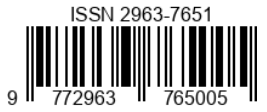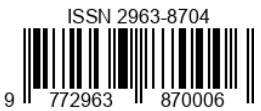Pentingnya Pemisahan Kekuasaan Dalam Mempertahankan Pemerintahan Yang Seimbang
DOI:
https://doi.org/10.55606/jhpis.v3i3.3872Keywords:
Fourth Branch, Normative Method, Balanced GovernmentAbstract
The division of power into three branches put forward by two experts called trias politica which is generally divided into legislative, executive, and judicial powers, the fourth branch put forward by Hans Kelsen in the statement of ensuring regime stability requires a fourth branch referred to as the Constitutional Court which is believed to be the guardian of the stability of the other three branches by maintaining the constitution in the party government and with this function can determine many other characteristics. By using a normative method that aims to understand and interpret the rules of law contained in the constitution of state administration in Indonesia, ensuring the suitability of each rule of law with the norms that apply in the context of writing articles on constitutional law. The data used in this paper is secondary data. This existence of a balanced government in the state administration ensures that there is a fair contribution of power in each power-sharing system with the aim of monitoring and balancing each other to prevent abuse of power and ensure the fulfillment of citizens’ rights.
Downloads
References
Arbani, T. S. (2016). Jurnal Analisis Yuridis Cabang Pemerintahan Keempat “The Fourth Branch Of Government” dalam Struktur Ketatanegaraan di Indonesia. Jurnal Analisis Yuridis Cabang Pemerintahan Keempat, 5(2), 175.
Baron de Montesquieu. (n.d.). The Spirit of Laws; Dasar-Dasar Ilmu Hukum dan Politik (M. Khoiril A., Trans.). Bandung: Nusa Media.
Budiarjo, M. (2002). Dasar-Dasar Ilmu Politik. Jakarta: Gramedia.
Chandranegara, I. S. (2016). Penuangan Checks and Balances kedalam Konstitusi. Jurnal Konstitusi, 13(3), 556.
Fahmi, K. (2024). Menjangkau Keadilan Pemilu Substantif. Retrieved from unad.ac.id
Tauda, G. A. (2012). Komisi Negara Independen (Eksistensi Independen Agencies Sebagai Cabang Kekuasaan Baru Dalam Sistem Ketatanegaraan). Yogyakarta: Genta Press.
Ismansyah, & Muchtar, H. (2010). Pengembangan Ilmu Hukum di Indonesia: Reformasi dalam Penyelesaian Permasalahan Hukum. DEMOKRASI, 9(1), 169.
Kusniardi, M., & Ibrahim, H. (1983). Pengantar Hukum Tata Negara Indonesia. Jakarta: Pusat Studi Hukum Tata Negara Fakultas Hukum UI.
Lailam, T. (2021). Problem dan Solusi Penataan Checks and Balances System dalam Pembentukan dan Pengujian Undang-Undang di Indonesia. Jurnal Negara Hukum, 12(1), 128.
Marlina, R. (2018). Pembagian Kekuasaan dalam Penyelenggaraan Pemerintahan di Indonesia. Jurnal Daulat Hukum, 1(1), 175-176.
Mochtar, Z. A. (2016). Lembaga Negara Independen. Jakarta: Rajawali PERS.
Mahfud MD, M. (2002). Demokrasi dan Konstitusi Indonesia: Studi Tentang Interaksi Politik dan Kehidupan Ketatanegaraan. Jakarta: Rineka Cipta.
Thushnet, M. (2021). The New Fourth Branch (Institution for Protecting Constitutional Democracy). Cambridge University.
Wiyanto, A. (2013). Pemakzulan dan Pelaksanaan Mekanisme Checks and Balances dalam Sistem Ketatanegaraan Indonesia. Jurnal Negara Hukum, 4(1), 137.
Downloads
Published
How to Cite
Issue
Section
License
Copyright (c) 2024 JURNAL HUKUM, POLITIK DAN ILMU SOSIAL

This work is licensed under a Creative Commons Attribution-ShareAlike 4.0 International License.

















